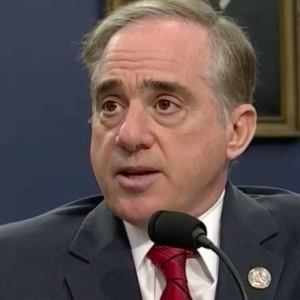For former Veterans Affairs Secretary David Shulkin, the Manchester, NH VA Medical Center was both his high point and his downfall. Now New Hampshire officials are wondering what his legacy will be for Granite State veterans.
Within hours of President Trump’s tweet announcing that he was firing Shulkin and replacing him with White House physician Navy Rear Admiral Ronny Jackson, NH Rep. Carol Shea-Porter tweeted:
The next Secretary must protect the VA healthcare system from efforts to dismantle it. In August of last year, Secretary Shulkin made commitments to New Hampshire veterans. I still expect those commitments to be met. Anything less is unacceptable.
— Rep. Shea-Porter (@RepSheaPorter) March 28, 2018
Among those commitments: $30 million in new spending on the Manchester VA Medical Center–a high-profile pledge he made in Manchester, surrounded by state leaders, just weeks after firing the top two local VA officials. Gov. Chris Sununu and other political leaders said they were pleased with the reform efforts of Secretary Shulkin. “It’s a new day, ” Shea-Porter said at the time. Manchester appeared to be a big win for Shulkin.
Unfortunately it also played a cameo role in his ouster. The VA secretary was unable to shake the consequences of expensive (and questionable) taxpayer funded travel. According to a damning Inspector General’s report, when confronted about apparently light, tourism-friendly schedule on an official trip to Copenhagen, Shulkin defended himself by pointing to the time he spent “handling of matters relating to a media crisis that developed relating to allegations of substandard care at the Manchester VA Medical Center.”
It appears Shulkin mishandled the entire “luxury travel” scandal. As USA Today reports:
He first blasted the VA inspector general’s findings that he improperly accepted Wimbledon tickets and airfare for his wife during the 10-day junket. He then refused to accept the determination that his chief of staff misled ethics officials to get clearance for his wife’s airfare, suggesting instead that her email had been hacked. Shulkin later expressed regret and repaid the cost of the tickets and airfare. But he also complained that the appointees were targeting and undermining him.
That’s not what President Trump wanted to hear. But it could be music to the ears of VA reformers urging that veteran’s health services be handled by the private sector, the so-called “privatization” issue. A source close to VA leadership told NHJournal:
“Shulkin enjoyed tremendous support from the Veterans Service Organizations because they knew he wouldn’t privatize. Veterans are proud of their service and the benefits they’ve earned. VA Healthcare is one of those benefits.”
Privatization is also clearly on the minds of New Hampshire’s politicians. Rep. Annie Kuster posted on her FB page:
I was disappointed by the misuse of taxpayer dollars by Secretary Shulkin that eroded the trust of the American people. Unfortunately, I have serious concerns that his firing today will strengthen efforts to privatize operations within the Department of Veterans Affairs. I’ve spoken with many Granite State veterans who fear the loss of camaraderie and the full recognition of their veteran status that comes with receiving care at the VA.
Privatization of the VA health system has long been the goal of economic conservatives, but they’ve always lacked the political support to get it done. It seems highly unlikely that the new VA Secretary, a White House doctor with a military background, is going to lead that ideological charge.

